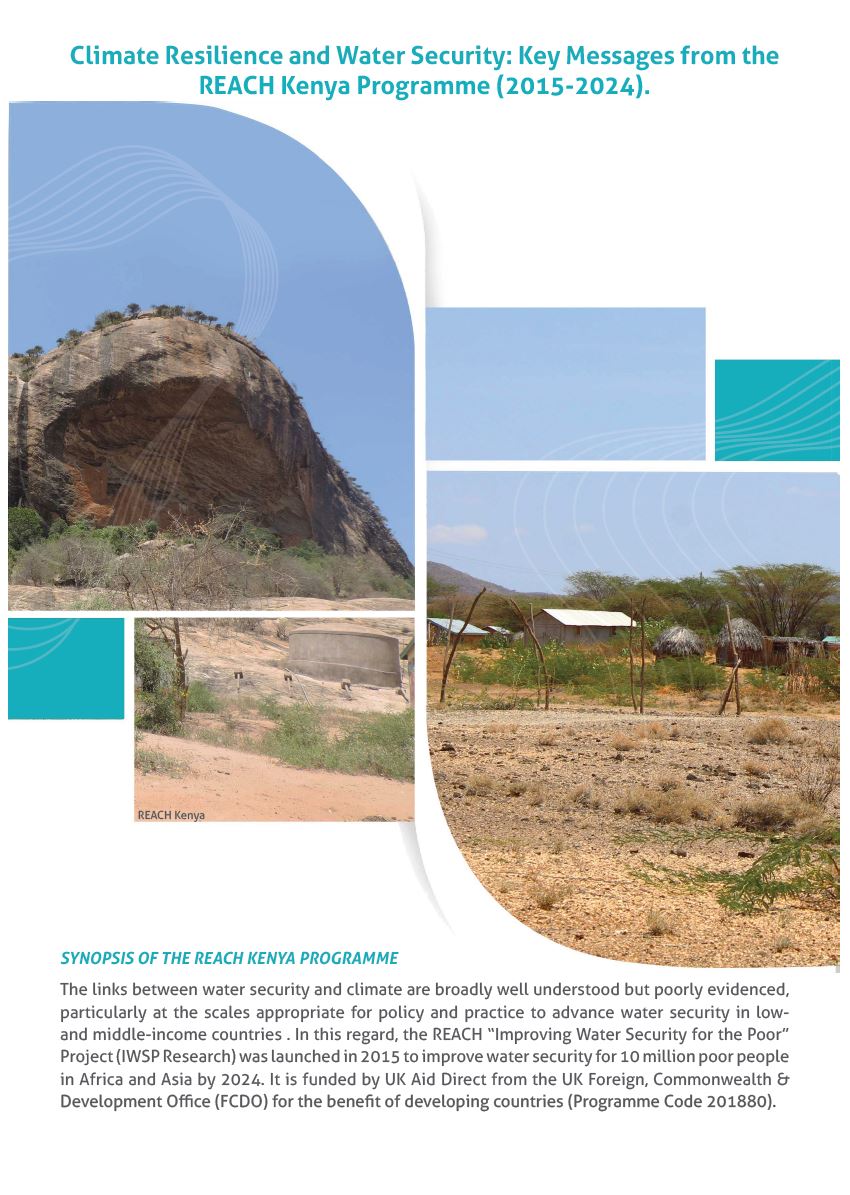Daniel Olago, Albert Mumma, Gilbert Ouma, Maggie Opondo, Salome Bukachi, Dalmas Omia, Florence Tanui, Maxwell Odira, Dennis Ong’ech, and Bonface Wanguba (2024)
The links between water security and climate are broadly well understood but poorly evidenced, particularly at the scales appropriate for policy and practice to advance water security in low and middle-income countries. This report from the Institute for Climate Change and Adaptation (ICCA) at the University of Nairobi, Kenya provides a summary of key messages from research conducted under the REACH Kenya programme (2015-2024):
Building capacity for climate resilience
1. Climate change and variability pose significant challenges to water security in Kenya, requiring proactive measures to mitigate its impacts.
2. Investing in groundwater studies is a sure way to secure water supplies in ASALs under climate change and avoids costly investment mistakes.
3. Groundwater systems and their recharge catchments must be protected for climate resilience and water security through appropriate policies and programmes.
4. Innovative approaches to managing urban water supply systems and embedded efficiencies in operations and maintenance ensure sustainable water services in the face of climate risks.
Improving water quality management
5. Groundwater quality information is crucial for sustainable water security in Kenya, as it is a vital source of drinking water and other uses for many communities.
6. Translating research evidence into policy and programming is crucial for effective water security interventions in Kenya, bridging the gap between scientific knowledge and practical implementation.
Strengthening institutions for water security
7. Universal, safe, and reliable water service delivery for rural communities is achievable by 2030 through professionalised service delivery models such as FundiFix.
8. Universal safe water service in schools for drinking, food preparation, handwashing, general hygiene, and sanitation is required to achieve and sustain basic education outcomes.
9. Research by the REACH Programme has estimated the cost of providing reliable water and handwashing services in rural healthcare facilities (HCFs) to be around KES 150/- per patient visit.
10. Capacity building in the water sector is essential for enhancing knowledge, skills, and expertise, strengthening the capacity of individuals and institutions to address water security challenges effectively.
Reducing inequalities in water security
11. Addressing inequalities in vulnerability to climate shocks requires explicit consideration of inequalities in water security programming and equity in investments.
12. Reducing inequalities in access to water resources and services is crucial for achieving equitable water security in Kenya, ensuring that vulnerable and marginalised communities have equal opportunities and rights to safe and reliable water.
13. Community engagement is vital for inclusive and participatory water governance and management in Kenya’s drylands, fostering local ownership and sustainable solutions.

